Sarah Wynde's Blog, page 104
December 7, 2011
Minor tweaks
Tweaks. A few font changes, including playing with the shadow effect on the title to make it pop. I'm hoping to get it readable in a thumbnail, but since that's hard to judge in Powerpoint, I have to look at it online to be sure. Is this boring anyone else yet?
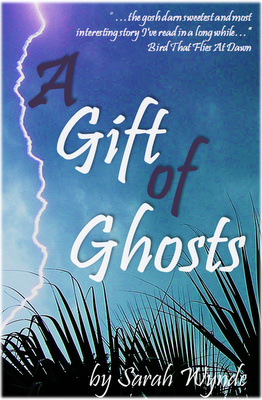
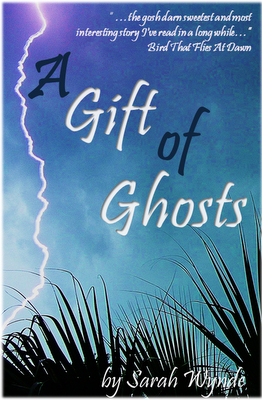



Published on December 07, 2011 10:08
December 6, 2011
Getting close
I have the one big revision to do and I'm going to tackle that tomorrow. Then I'll start the read aloud, which ought to be fun. Then a copyright page, then deciding whether to learn how to create a real TOC for the Kindle. It seems as if it might be a good idea but I don't know whether anyone cares. Still, learning is useful.
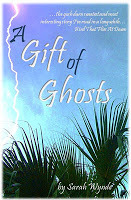
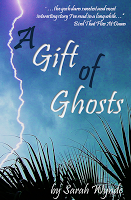
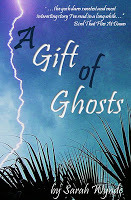
Today was playing with cover files, though. I believe my preference is number 3. Maybe, anyway. I wish I didn't start to get so insane about the fonts. Powerpoint just doesn't have the right tools for them.



Today was playing with cover files, though. I believe my preference is number 3. Maybe, anyway. I wish I didn't start to get so insane about the fonts. Powerpoint just doesn't have the right tools for them.
Published on December 06, 2011 17:32
Credit where due
I just spent a frustrating hour searching for the image that I used on the Ghosts cover. I think I've basically decided that it is the real and final cover (maybe some tweaking), and so even though the image was public domain, I wanted to credit the photographer and the website on the copyright page. Argh. Of course, I bookmarked the site, but then I lost all my bookmarks.
For future and current reference: Lightning Strike by Adam Weeden is the original image.
For future and current reference: Lightning Strike by Adam Weeden is the original image.
Published on December 06, 2011 16:25
December 3, 2011
Following the rules
Agents don't like . . .
If you want to sell, you should . . .
I've heard that it's bad to use . . .
Using (word) slows down your writing, you should always . . . , Never put . . . , You should . . . , You must . . . You have to . . .
I've so appreciated the feedback I've gotten from other writers over the last few weeks. Really, I have. But I need to vent anyway.
When did writers become so rule-bound? How has publishing managed to inflict such an endless list of shoulds and have-tos and musts on people who want to be creative? I'm not talking about knowing the fundamentals. (Although, frankly, I'm perfectly happy to break those rules, too. Most of the time, yes, your sentences should include both a subject and a verb. But not always.) No, I'm talking about writers following rules they don't even understand. Someone's told them a "rule," and suddenly every sentence with "was" should be re-worded, even if doing so changes the meaning of the sentence. How can meaning be less important than following a nonsensical rule?
I admit, when I was an editor, I was guilty of inflicting some arbitrary rules on authors myself. I remember telling one author never to use a pronoun. But his sentences were getting tangled. Forcing him to think about the real noun behind every "it" helped him clarify his meaning, and in some cases, probably his thinking, too. And I would not have told him to write pronoun-free fiction, nor would I have tried to make it a universal rule.
I do have some of my own rules that I try to follow. Most of the time, one exclamation point per paragraph or page, because I tend to get excited. Try to change "thing" to a real noun, because using it is easy but often unclear. Use vague language, including "just," "sort of," "kind of," "pretty much," inside quotation marks, but not outside, because it makes dialog feel real but writing feel sloppy. But I know the reasons for all those rules, and I know that I can break them whenever I want to.
I think the saddest aspect of seeing all these people following all these rules is the belief behind their actions: if I follow the rules, I will sell books. If I do everything "right," I will succeed. But book publishing doesn't work that way, never has. If it did, Harry Potter would not have sold. Twilight would not have sold. Danielle Steel, Nora Roberts . . . best-selling authors break the rules. And it's not because they became best-sellers by following the rules and then started breaking them. Harry Potter breaks the rules on page one. And yes, that's why it was rejected by multiple publishers before finally getting picked up. But last year over a quarter of a million books were published in the US. Most of them made it to print, but didn't make it to success. That's because publishers don't know what sells. Not really. Neither do agents. Neither do writing teachers. Neither do I, for that matter.
I do know, though, that writing for money is a waste of time. Most people would do better by getting a minimum wage job and spending their entire paycheck on lottery tickets. (Favorite writer joke: Know the difference between writing a bestseller and winning the lottery? You can improve your chances of winning the lottery.)
Writing for fun, on the other hand, is a wonderful way to spend your time. Writing for fun and then trying to sell what you've written so that other people can enjoy the world you've created? Also makes total sense to me.
The dog is looking imploring and she's a half hour late for her walk, so off I go. And when I come back, I'm working on Thoughts. But tomorrow, I want to write more about self-publishing.
Published on December 03, 2011 04:35



